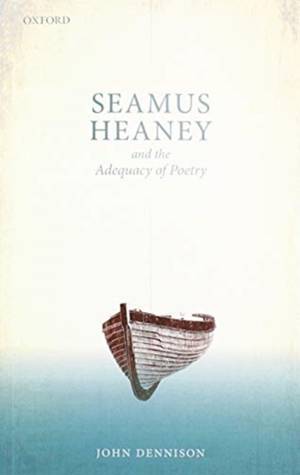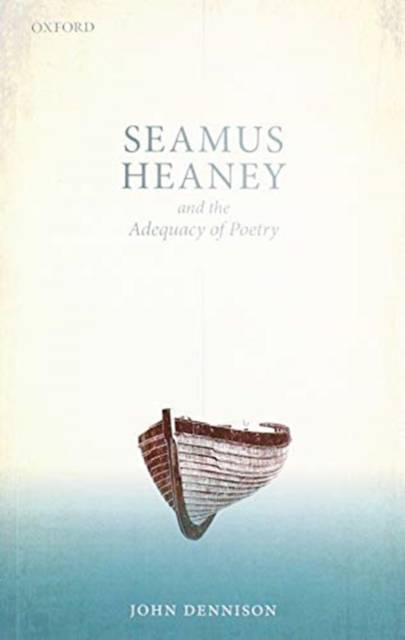
- Afhalen na 1 uur in een winkel met voorraad
- Gratis thuislevering in België vanaf € 30
- Ruim aanbod met 7 miljoen producten
- Afhalen na 1 uur in een winkel met voorraad
- Gratis thuislevering in België vanaf € 30
- Ruim aanbod met 7 miljoen producten
Zoeken
Omschrijving
Seamus Heaney's prose poetics return repeatedly to the adequacy of poetry, its ameliorative, restorative response to the violence of public historical life. It is a curiously equivocal ideal, and as such most clearly demonstrates the intellectual origins, the humanist character, and the inherent strains of these poetics, the work of one of the world's leading poet-critics of the last thirty years. Seamus Heaney and the Adequacy of Poetry is the first study of the development of Heaney's thought and its central theme. Eschewing the tendency of Heaney critics to endorse or expand on the poet's poetics in largely adulatory terms, it draws on archival as well as print sources to trace the emerging dualistic shape, redemptive logic, and post-Christian nature of Heaney's thought, from his undergraduate formation to the expansive affirmations of his late cultural poetics. Through a meticulous and wholly new examination of Heaney's revisions to previously published prose, it reveals the logical strain of his conceptual constructions, so that it becomes acutely apparent just how appropriate that ambivalent ideal 'adequacy' is. This book takes seriously the post-Christian, frequently religious tenor of Heaney's language, explicating the character of his thought while exposing its limits: Heaney's belief in poetry's adequacy ultimately constitutes an Arnoldian substitute for--indeed, an 'afterimage' of--Christian belief. This is the deep significance of the idea of adequacy to Heaney's thought: it allows us to identify precisely the late humanist character and the limits of his troubled trust in poetry.
Specificaties
Betrokkenen
- Auteur(s):
- Uitgeverij:
Inhoud
- Aantal bladzijden:
- 272
- Taal:
- Engels
Eigenschappen
- Productcode (EAN):
- 9780198831198
- Verschijningsdatum:
- 18/02/2019
- Uitvoering:
- Paperback
- Formaat:
- Trade paperback (VS)
- Afmetingen:
- 137 mm x 213 mm
- Gewicht:
- 498 g

Alleen bij Standaard Boekhandel
+ 141 punten op je klantenkaart van Standaard Boekhandel
Beoordelingen
We publiceren alleen reviews die voldoen aan de voorwaarden voor reviews. Bekijk onze voorwaarden voor reviews.








